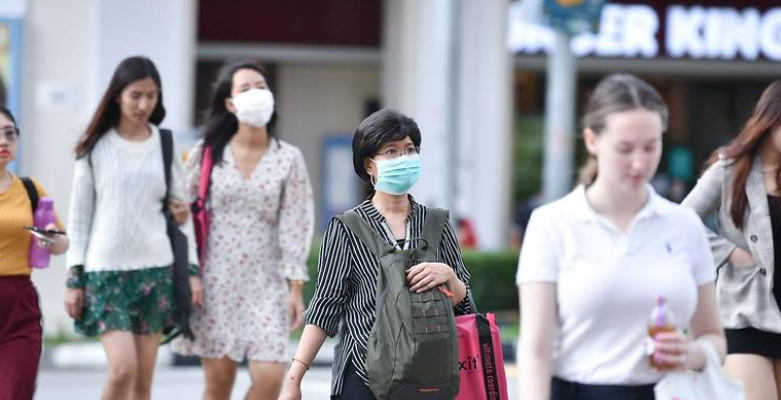-
No products in the cart.
Tips To Boost Immunity Against Coronavirus – Part 3

Most living in Singapore have become more anxious and concerned ever since the Disease Outbreak Response System Condition (DORSCON) has been raised to Orange level in our tiny island state two weekends ago. This has triggered a nation-wide effect of panic-shopping as people feel compelled to stock up on essential items to stay prepared in case the situation worsens.
However, what’s appalling is some of the food choices that people make when it comes to stocking up the pantry in times like this. One of these choices is instant noodles. Seriously, are we more fearful of going hungry in Singapore than being infected with the virus that we have to stock up on instant noodles which actually weaken our immunity against illnesses/viruses? We should be stocking up on nutrient-dense foods that build up our immune system instead of foods that tear it down.
We take this opportunity to list some common, nutrient-poor, highly processed foods/beverages that you should NOT be eating during this crucial time.
Foods that Weaken Immunity
These foods usually have added additives, preservatives and refined sugars which will weaken your immune system over time.
1. Highly Processed Foods/ Foods High in Refined Sugar
Processed foods, often consumed for their convenience, are bad for the immune system as it contains significant amounts of hidden sodium, bad fats, refined sugars, preservatives and additives. Check the ingredients list on the product label – there is usually a long list of chemical names that the ordinary consumer would not recognize what they are. This includes foods such as instant noodles, canned soups/foods, chips, sugary snacks and processed meats like bacon, sausage and ham.
Excessive sugar intake directly impacts the immune system as sugar (glucose) molecules inhibit vitamin C from entering our cells, decreasing absorption rates. Vitamin C is a core nutrient needed by the immune cells to fight viruses and bacteria. Increase in the consumption of refined sugar results in insufficient amounts of Vitamin C needed for the immune cells to function. Moreover, unwanted strains of bacteria positively thrive on sugar. This results in a negative effect on the blood sugar levels and most importantly, immune function.
A popular additive used in processed foods is MSG, which make canned foods tasty. MSG can go by many different names on the product label. MSG has harsh effects on your immune system. Evidence has shown that consuming foods with MSG can cause unnecessary changes to the thymus and spleen which are key organs for immune function. Hence, processed foods loaded with refined sugars and preservatives/additives should be avoided as much as possible.
2. Fast Food
Yes, this includes your favorite McDonalds. We have all heard time and again that eating fast food (a lot of sugar/saturated fat and low in fiber) is not good for the body. But why? Evidence suggests that consuming fast food on a regular basis upsets the immune system and reprograms the way the immune system reacts to potential issues in the body by putting it in a constant state of “high alert”, as if it is responding to bacterial infections. This constant state brings about undesirable inflammatory responses in the body which weakens the immune system.
3. Alcoholic beverages
There are a number of ways excessive alcohol impairs our immune system. Excessive alcohol consumption impacts negatively on our digestive system and gut’s microbiome. Our gut health is closely linked to our immune system – 70% of the cells that make up our immune system is housed in our gut wall. Drinking a lot of alcohol severely disturbs our gut’s microbiome, significantly altering the balance of healthy and unhealthy bacteria. Excessive alcohol can also lead to the malfunction of important immune cells such as macrophages and T cells in the body. Clinicians have long observed an association between excessive alcohol consumption and adverse immune-related health effects such as susceptibility to pneumonia.
Moreover, excessive drinking can affect hormone levels and this affects Circadian rhythm. As the sleep cycles are closely related to immune function, alcohol-related effects in the Circadian rhythm can result in a person falling ill easily. Studies have shown that even moderate drinking can temporarily lower your immune function. Hence, alcohol should be avoided in times like the present.
4. Excessive Caffeine
Many working adults rely on caffeine to help them stay alert and awake especially in the afternoon. However, overdosing on caffeine does have some negative effects on the immune system. The boost of energy that keeps you awake in the morning can also result in an unpleasant side effect of boosted cortisol levels. Cortisol, a hormone released in the body in response to stress, affects your metabolism and mood. Health concerns associated with this stress response include high blood sugar, elevated cholesterol and triglycerides, and suppression of your immune system. Moreover, overdosing on caffeine reduces the number of T cells the body produces, thus making it harder for you to stay healthy.
If you can’t do without your morning coffee, it is best to stick to just 1 cup a day. Matcha will be a great substitute for coffee if you need a pick-me-up in the afternoon without the harmful effects of caffeine. Matcha is one of the superfoods we recommend for immune-boosting effects as well as mental alertness.RELATED POSTS
- Tips To Boost Immunity Against Coronavirus – Part 2
- Tips To Boost Immunity Against Coronavirus – Part 1

